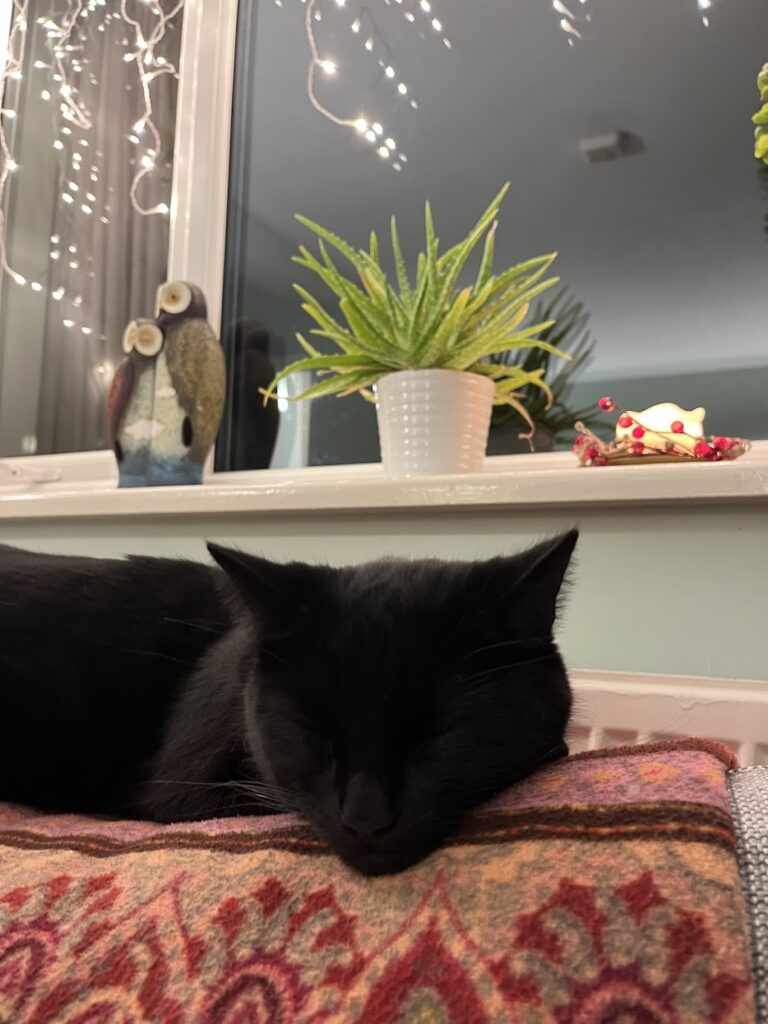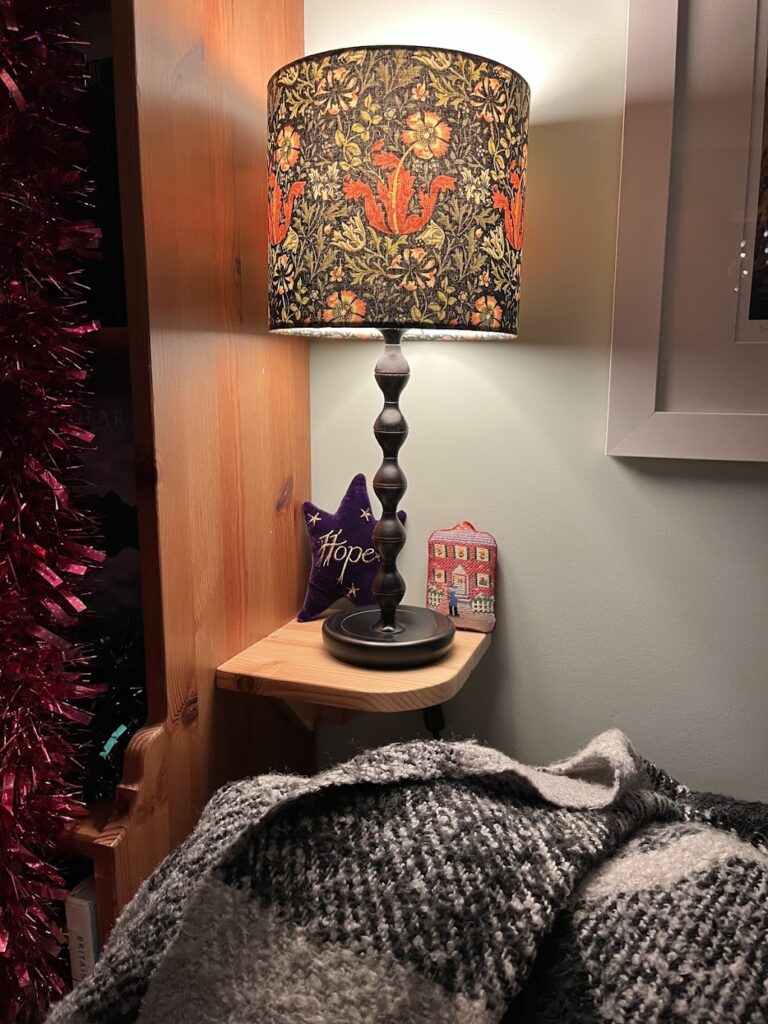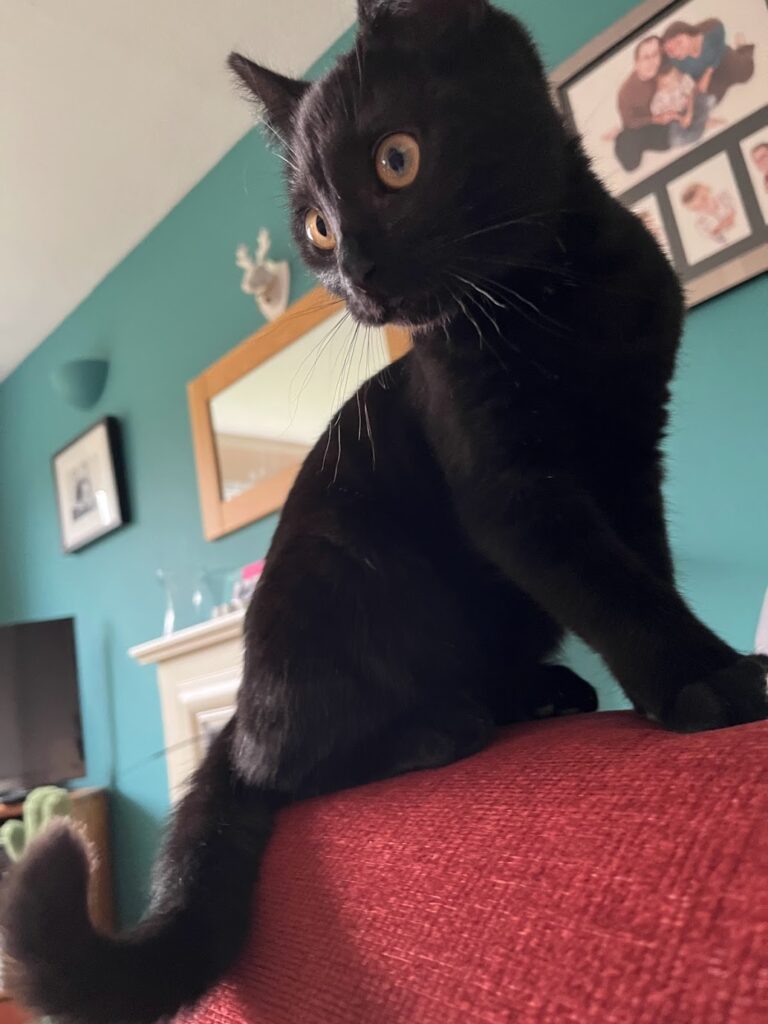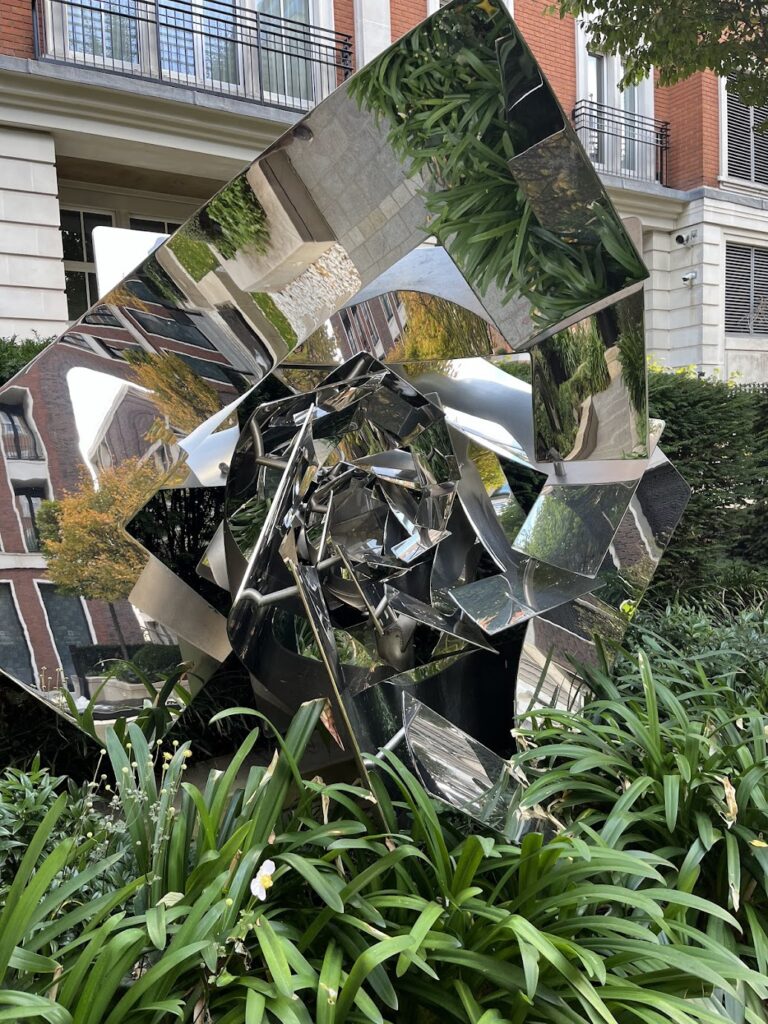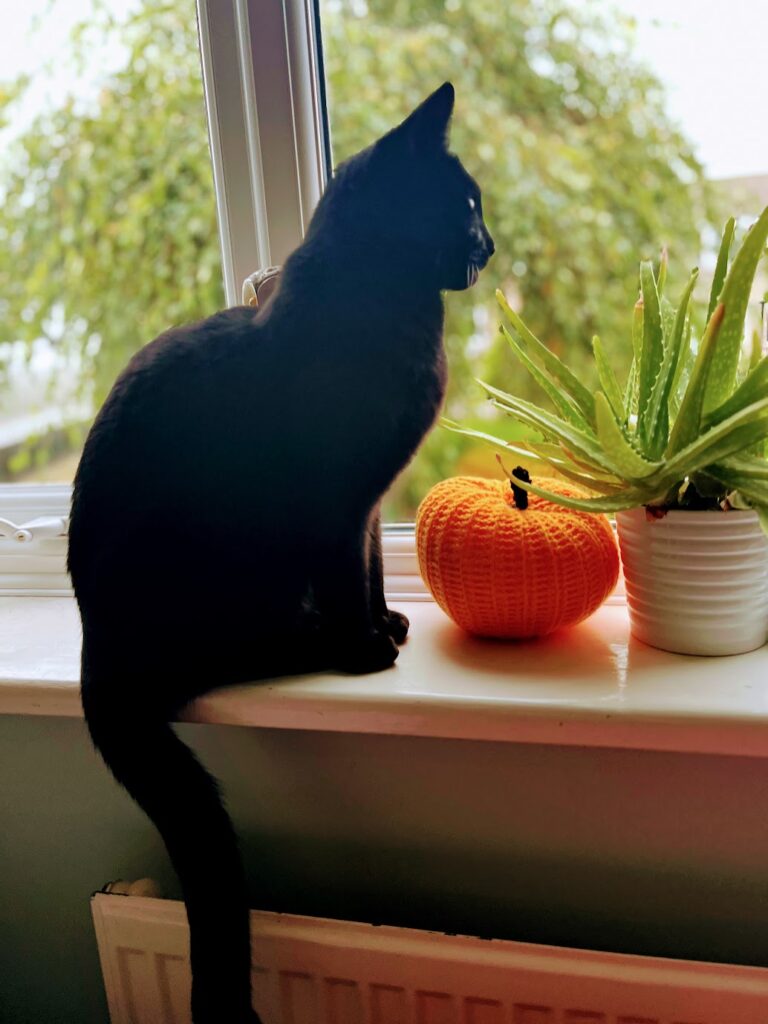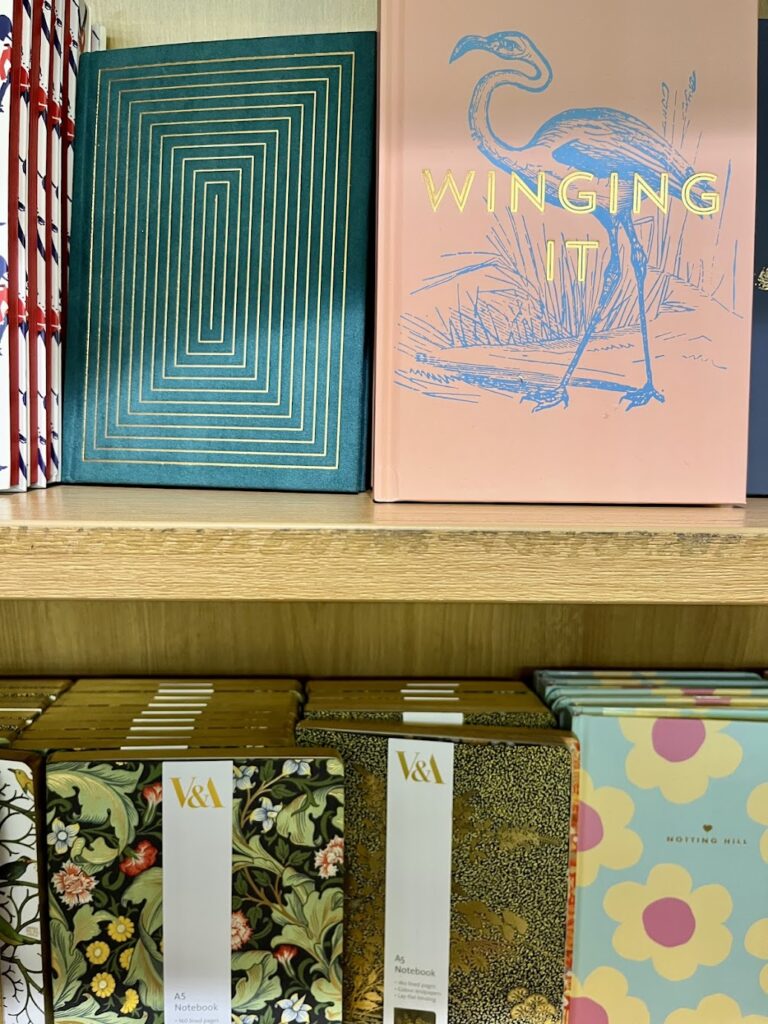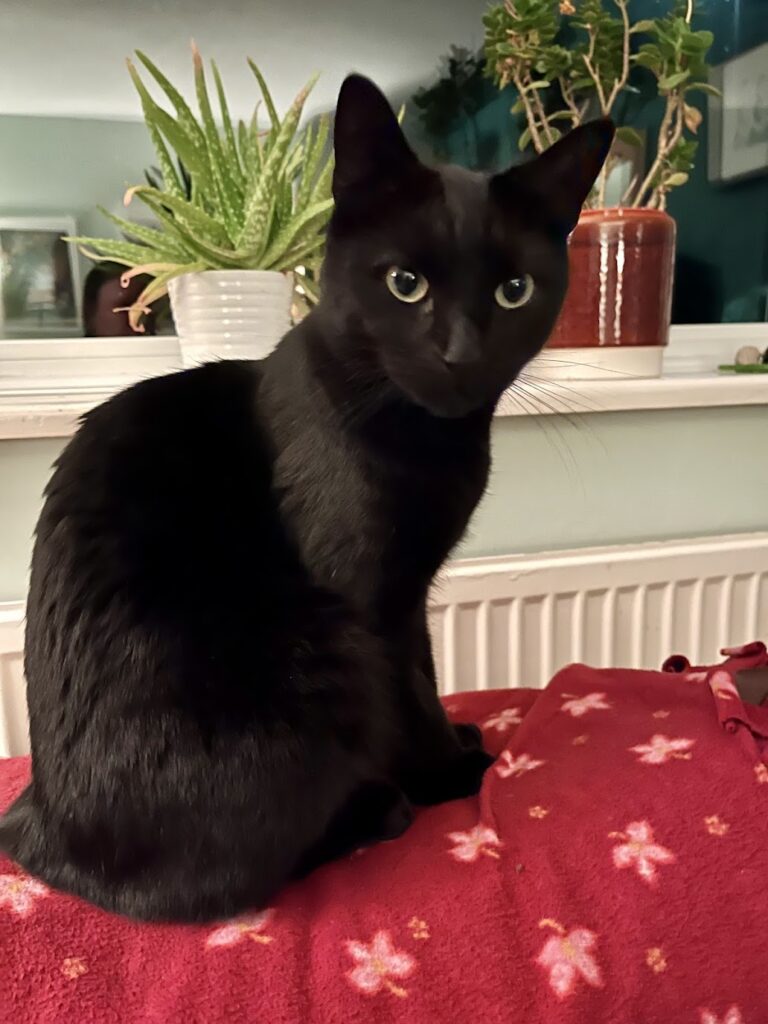This Week’s Bit of String: Making it to Europe
When Operation Desert Storm began in early 1991, my aunt, a nurse, renewed her passport. If necessary, she’d be sent to military hospitals in Germany to assist wounded soldiers.
I was ten years old, and jealous. Forget the desert, the storm, the war. Germany made me think of Alps and castles and history. I wanted in on the adventure.
I remember moaning at the kitchen table, “I’ll be an old maid by the time I ever reach Europe!”
In fact, I’ve lived almost half my life on this side of the Atlantic. I first visited the continent when I was 19, and I may have felt terminally single when I arrived, prematurely an old maid, but I returned to the USA [unwittingly] pregnant. Eventually, marriage anchored me here in the UK.
Life can certainly twist. I decorated for Christmas last week, hanging the stocking my mother embroidered for me, and the one she made for my husband. My Baby’s First Christmas 1980 ornaments from when I was 11 days old are on our Argos-ordered tree, and I bet my mom didn’t imagine they would travel this far.
I turn 45 this weekend, and while it would be nice to have a few more publications to my name, I’m quite content. I’ve had the wonderful excitement of being a parent, plus occasional travel, and my job certainly isn’t dull.
I like the sound of 45. It makes me think of a speed limit that’s high for a town centre or residential street, but just about too cautious for the highway. That suits me. I’ll be celebrating with an Italian meal in a Cotswold town, and maybe carol-singing at the local pub after. If it’s not pouring rain, I’ll have a long hike to a nearby town and write there for a couple hours the day before.
Paragraphs After Paragraphs
At work the other day, the bottom set Year 10s were working on narrative and descriptive writing. It’s for the 40-mark Language GCSE question, so the teacher insisted they write at least 5 paragraphs. That sounds impossible to them.
The scruffy little rugby player banished to the back corner learned that I write stories. He asked, “Were they long, what you wrote?”
Over the whole of my life I’ve probably written at least 5000 pages of story drafts by now. Counting my daily scribbles, it might be 10,000 (admittedly not all A4 sized).
We had this conversation as I encouraged young Mr. Rugby based on what he’d already written. He’d done three short paragraphs, and I’d never seen him so focused. It was hard work for him, but something must have gelled. In Maths and Science, he’s so distracted by other students’ antics that he barely does any work at all.
I’d been urging him to view concentration as a muscle that needs building. “It’s like how you do drills with your rugby team, right? Let’s see if you can go thirty seconds without looking away from your work. Then a minute.”
I’m not sure this has caught on yet. But every now and then, it’s worth testing my own focus “muscles” as well. I spend the majority of my time trying to cross multiple items off a to-do list at once. With the weather worsening and the holidays approaching, it’s extra busy in some ways but it also feels like an ideal time to slow down.
Adjusting Speed
I always re-watch the extended version of Lord of the Rings as the nights draw in. I can’t imagine watching the more concise version; I want to be immersed in the epic worldbuilding and character development. But I also have the decorations to put up, shopping to do, treats to bake, on top of the usual commitments, so for example last year, I was hanging ornaments on the tree while Return of the King was on, and I had to pause with angels dangling from my fingers to make sure I took in the wondrous lighting of the beacons.
This year, somehow I managed to be still for long portions of the films. I wasn’t even scribbling or answering messages on my phone or using the Mahjongg app. I’d lit candles, my own mini-beacons, and I just curled up to watch the story unfold.
It felt luxurious. I did the same, briefly, when I put Frozen on the following weekend. What a treat to train undivided attention on the opening scenes: the view through the ice, the sunrise and aurora colours. I miss the wintry terrain of home sometimes, and I marvel at how this Disney animation captured the slightly porous, ridged contour of the ice chunks.
I’m also treating myself to sink into a reread of Erin Morgenstern’s The Starless Sea, which I read just a year ago. But I craved the sumptuous layers of stories and magic, and wanted to see what I can pick up from a second read.
I still have big plans of course, for Christmas and for the next year. Hikes and excursions… In 2026 we’ll be taking a little trip to France for a Jazz Festival, and I’ll visit my family. Even when I feel a bit worn out, there’s some part of me aching to keep exploring, to keep making the most of each day. I’m just reminding that intrepid young part of me that slowing down and enjoying a moment is pretty worthwhile, too.
How might you take things a bit slowly over the holiday?

